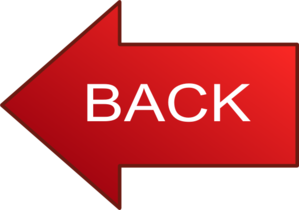Editor Resume Sample
Editor Resume Sample Bullet Points
- Plan, coordinate, or edit content of material for publication.
- Review proposals and drafts for possible publication.
- Prepare, rewrite and edit copy to improve readability, or supervise others who do this work.
- Verify facts, dates, and statistics, using standard reference sources.
- Read copy or proof to detect and correct errors in spelling, punctuation, and syntax.
- Develop story or content ideas, considering reader or audience appeal.
- Review and approve proofs submitted by composing room prior to publication production.
- Supervise and coordinate work of reporters and other editors.
- Plan the contents of publications according to the publication's style, editorial policy, and publishing requirements.
- Read, evaluate and edit manuscripts or other materials submitted for publication and confer with authors regarding changes in content, style or organization, or publication.
- Allocate print space for story text, photos, and illustrations according to space parameters and copy significance, using knowledge of layout principles.
- Oversee publication production, including artwork, layout, computer typesetting, and printing, ensuring adherence to deadlines and budget requirements.
- Make manuscript acceptance or revision recommendations to the publisher.
- Assign topics, events and stories to individual writers or reporters for coverage.
- Confer with management and editorial staff members regarding placement and emphasis of developing news stories.
- Meet frequently with artists, typesetters, layout personnel, marketing directors, and production managers to discuss projects and resolve problems.
- Monitor news-gathering operations to ensure utilization of all news sources, such as press releases, telephone contacts, radio, television, wire services, and other reporters.
Editor Resume Sample Keywords and Simple Resume Phrases
- Evaluating information to determine compliance with standards
- Judging the qualities of things, services, or people
- Organizing, planning, and prioritizing work
- Establishing and maintaining interpersonal relationships
- Documenting and recording information
- Communicating with supervisors, peers, or subordinates
- Communicating with persons outside organization
- Decision making, creative thinking and problem solving
- Updating and using relevant knowledge
- Identifying objects, actions, and events
- Interpreting the meaning of information for others
- Processing information
- Analyzing data or information
- Interacting with computers
- Scheduling work and activities
- Coordinating the work and activities of others
- Direct and coordinate activities of workers or staff
- Set page layout or composition
- Communicate visually or verbally
- Consult with managerial or supervisory personnel
- Interpret information to formulate story ideas
- Organize story elements
- Organize journalistic or literary data
- Proofread printed or written material
- Use computers to enter, access or retrieve data
- Conduct or attend staff meetings
- Follow copyright laws
- Schedule work to meet deadlines
- Read production layouts
- Ensure correct grammar, punctuation, or spelling
- Calculate headline size or count
- Identify interests of publication readers
- Oversee execution of organizational or program policies
- Index information resources
- Use word processing or desktop publishing software
- Write headlines
- Verify investigative information
- Approve product design or changes
- Verify sources or documentation for stories
- Coordinate production materials, activities or processes
